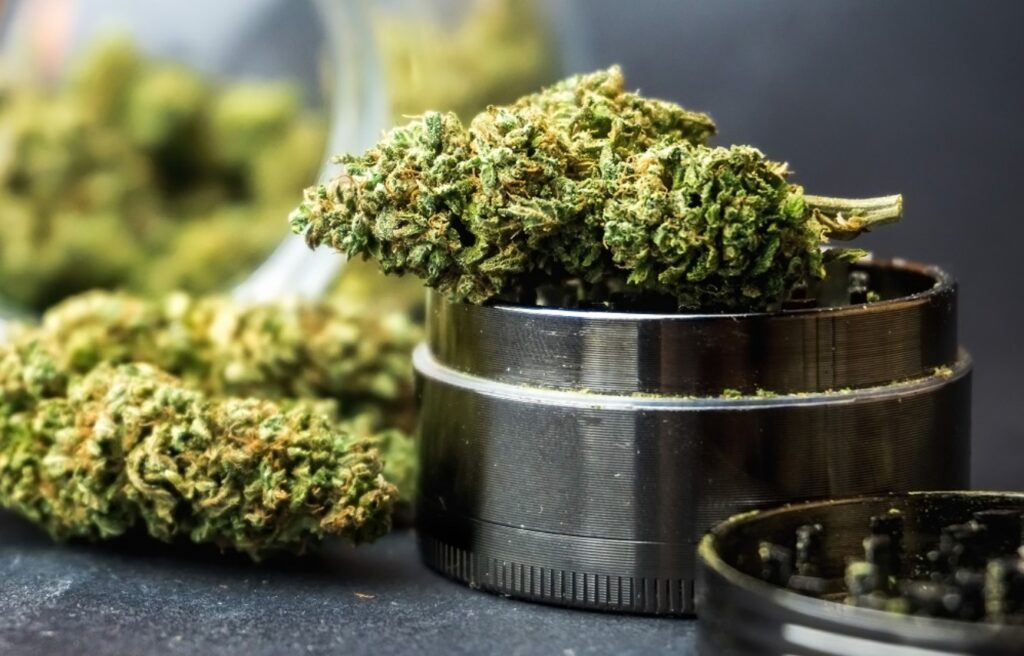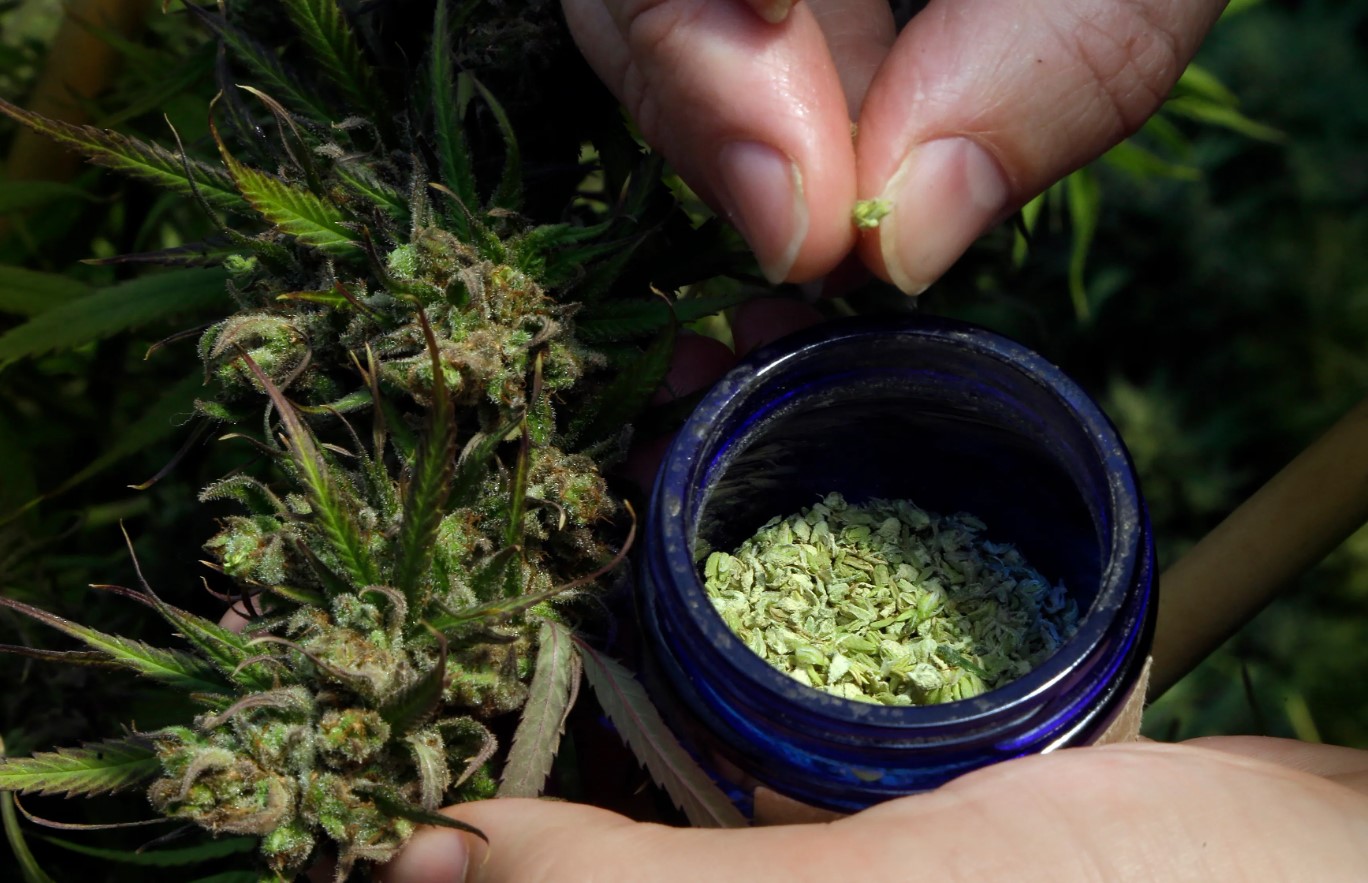What is the Entourage Effect?
Simply said, the entourage effect is the idea that when all of a cannabis plant’s compounds are taken together, they produce their best effects. The term entourage is used to describe herbal medicines that contain various components that interact to provide a certain impact on a person’s health, such as anxiety relief. Try our winter berry strain and full melt bubble hash canada.
The Entourage Effect and CBD
The entourage effect is interested in what happens when cannabidiol interacts with other chemicals, rather than just CBD. You may experience a variety of benefits by combining a variety of plant compounds.
Some examples of how these compounds work together include:
Terpenes are a type of aromatic chemical that has over 20,000 known compounds. Terpenes are most abundantly produced by the Cannabis plant, with over 140 identified. Terpenes are present in the form of aromatic substances, which are responsible for the plant’s fragrant smells. Limonene, for example, is a terpene found in lemon peels, while eucalyptol can be found in eucalyptus trees. Cannabis terpenes are a category of aromatic chemicals that occur naturally in the plant and provide it with its unique fragrance. They’re used to make many important oils, which have been anecdotally claimed to have their own benefits. Terpenes have been studied for their ability to change how the body utilizes cannabinoids, as well as for their beneficial properties. When combined with CBD, limonene has shown to promote euphoria, while pinene (which comes from pine resin) has demonstrated an increased sense of alertness.
THC & CBD: THC, unlike all other cannabinoids present in cannabis plants, is the only one that has a psychoactive effect. It is also banned in many countries. CBD, on the other hand, not only does not make you high but can also modulate the psychotropic effects of THC and help you come down sooner. Of course, because it contains no THC, CBD alone is considered to be advantageous and preferred by many people.

Types of CBD Products
CBD products are gaining a lot of popularity due to their non-intoxicating nature. However, there are numerous types of CBD oil supplements on the market. Each has a distinct combination of chemicals. You may choose between feeling high or not and utilizing the entourage effect, depending on whether you want to feel high or not and experience the entourage effect.
Broad-Spectrum
Broad-spectrum cannabis products, on the other hand, include all of the chemicals in cannabis except for THC. CBD in broad spectrum is beneficial for people who want to get the most out of their marijuana without feeling intoxicated or risking a drug test failure.
Full-Spectrum
THC is the most well-known cannabinoid in marijuana, but full-spectrum CBD products contain the entire range of cannabis compounds, including THC and all other cannabinoids, terpenes, and flavonoids.
Isolate
The chemical structure of the cannabinoids found in cannabis is quite distinct from one another. There is only one cannabinoid in cannabinoid isolates. Cannabinoid isolates can contain up to 99 percent of a particular cannabinoid. Powder or crystalline isolate products are most often used.
Learn More About Cannabis at Cannabis Training University
Although more study is needed into the entourage effect, studies have shown that full-spectrum extracts are superior to isolates. Isolates, on the other hand, may assist several others who can’t tolerate THC but still want plant-based medical advantages.
Enroll in Cannabis Training University’s online industry training program now to learn more about cannabis’ medicinal properties, cannabinoids and terpenes, and the endocannabinoid system.
Is CBD Still Beneficial Without THC?
Some people are hesitant to consume THC, but they are intrigued by CBD. There’s still a lot of evidence suggesting that CBD may be beneficial in the absence of the psychoactive component.
If you’re looking for a non-THC alternative to cannabis, go with CBD isolate rather than full-spectrum CBD. Full-spectrum CBD products have a wide range of cannabinoids and can contain up to 0.3 percent THC. That’s not enough to make you high, but it might show up on a drug test.
Before you make a purchase, be sure to check the ingredients to be sure of what you’re getting.
Takeaway
The entourage effect is the interaction that cannabinoids and terpenoids have with each other as well as with brain receptors. The entourage effect, in which cannabinoids and terpenoids interact, has been termed.
However, the entourage effect is still a hypothesis. More study of the cannabis plant and its chemical components is required before we can know all of its possible medical advantages.
THC & CBD: The Most Well-Known Cannabis Entourage Effect
The connection between CBD and THC is one of the first and most researched entourage effects. THC, the cannabinoid that makes you high, binds directly to CB1 cannabinoid receptors in the brain, whereas CBD works through various pathways to produce its effects. When you combine these two chemicals, CBD inhibits THC’s psychotic potential by preventing the CB1 receptors from which THC aims to attach from functioning. As a result, you will feel less intoxicated than if you consumed THC alone.
CBD’s effectiveness in reducing the high from THC is mounting. The Food and Drug Administration (FDA) gave its blessing to a synthetic form of THC known as Marinol in the 1980s. While the medicine did a good job of increasing appetites, it also induced anxiety. Sativex, another FDA-approved drug containing both CBD and THC at a 1:1 ratio, allows patients to tolerate it without becoming too stoned.
Once you understand how CBD, THC, and the CB1 receptor interact, you’ll have a basic understanding of how the entourage effect works. This is because THC is the agonist of this receptor, functioning like a key that opens the receptor’s lock. CBD isn’t an actual CB1 agonist, but it competes with THC for access to receptors. As previously said, when these two chemicals are combined, there are less available sites on which THC can act. The potential adverse effects of THC, such as anxiety and paranoia, are limited in this case.
